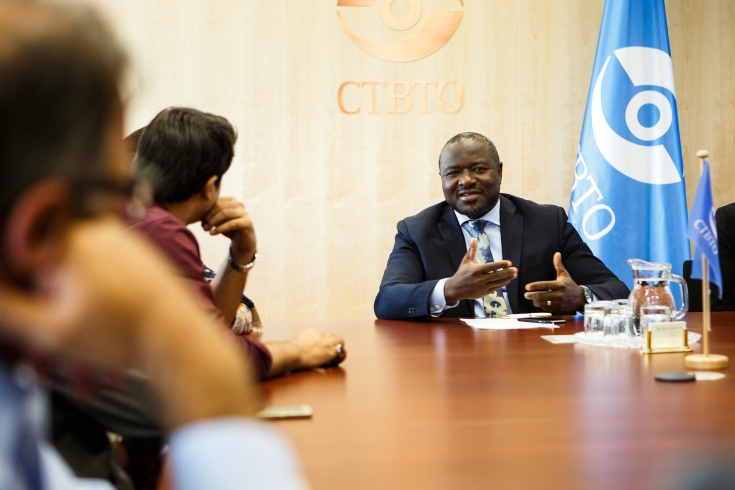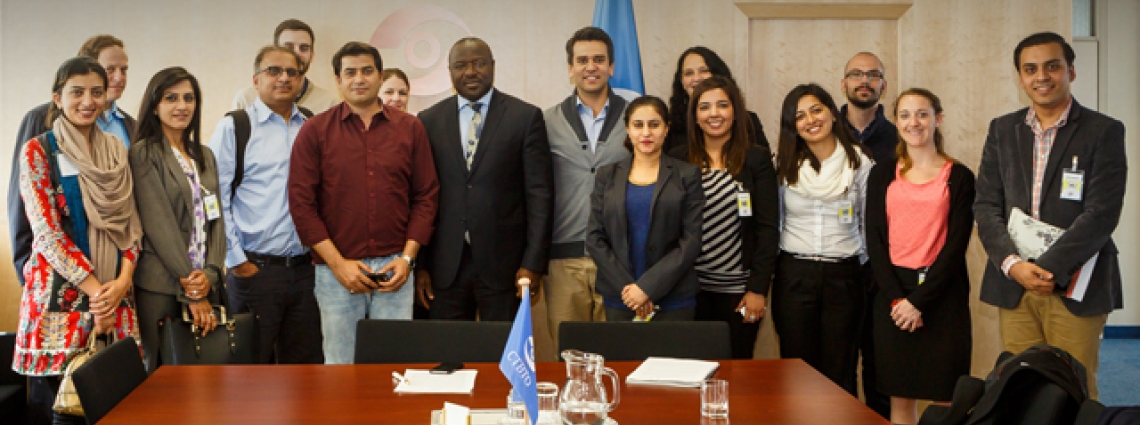Spreading the word – Pakistani journalists visit the CTBTO
Pakistan is one of two countries, along with India, who have yet to sign the Comprehensive Nuclear-Test-Ban Treaty (CTBT) in the South Asia region. These two countries, along with 6 other Annex 2 states, need to ratify the Treaty before it can enter into force.

Lassina Zerbo (right), Executive Secretary of the CTBTO, addressing Pakistani journalists.
“Nuclear explosions are a thing of the past. Pakistan can take leadership in ensuring the Comprehensive Nuclear-Test-Ban Treaty enters into force.”
The Pakistani journalists were also taken on a tour of the International Data Centre (IDC), the nerve centre from where data recorded by the CTBTO’s International Monitoring System (IMS) is processed. In addition to detecting nuclear explosions, these data can also be used for analysing earthquakes, providing advanced warning of tsunamis, and a wide range of other applications. Pakistan, who holds an ‘observer’ status to the Treaty’s decision-making body, the Preparatory Commission, is currently unable to access IMS data as a non-member of the Treaty.

Pakistani journalists receive a briefing of the work of the CTBTO at the Vienna International Centre.
“Nuclear explosions are a thing of the past; Pakistan has not tested in 18 years” Zerbo added. “Pakistan will gain access to the invaluable information provided by the IMS and gain trust within international fora by signing the CTBT.”
Zerbo also appealed to the journalists to highlight and create awareness of the CTBT on this, the 20th anniversary year of the Treaty’s opening for signature. “On 13 June 2016, a High Level Ministerial meeting will be held in Vienna to discuss the status of the Treaty. I invite my colleagues from Pakistan to attend and present their views on the Treaty so we can discuss the issues currently blocking progress.”
7 Apr 2016
